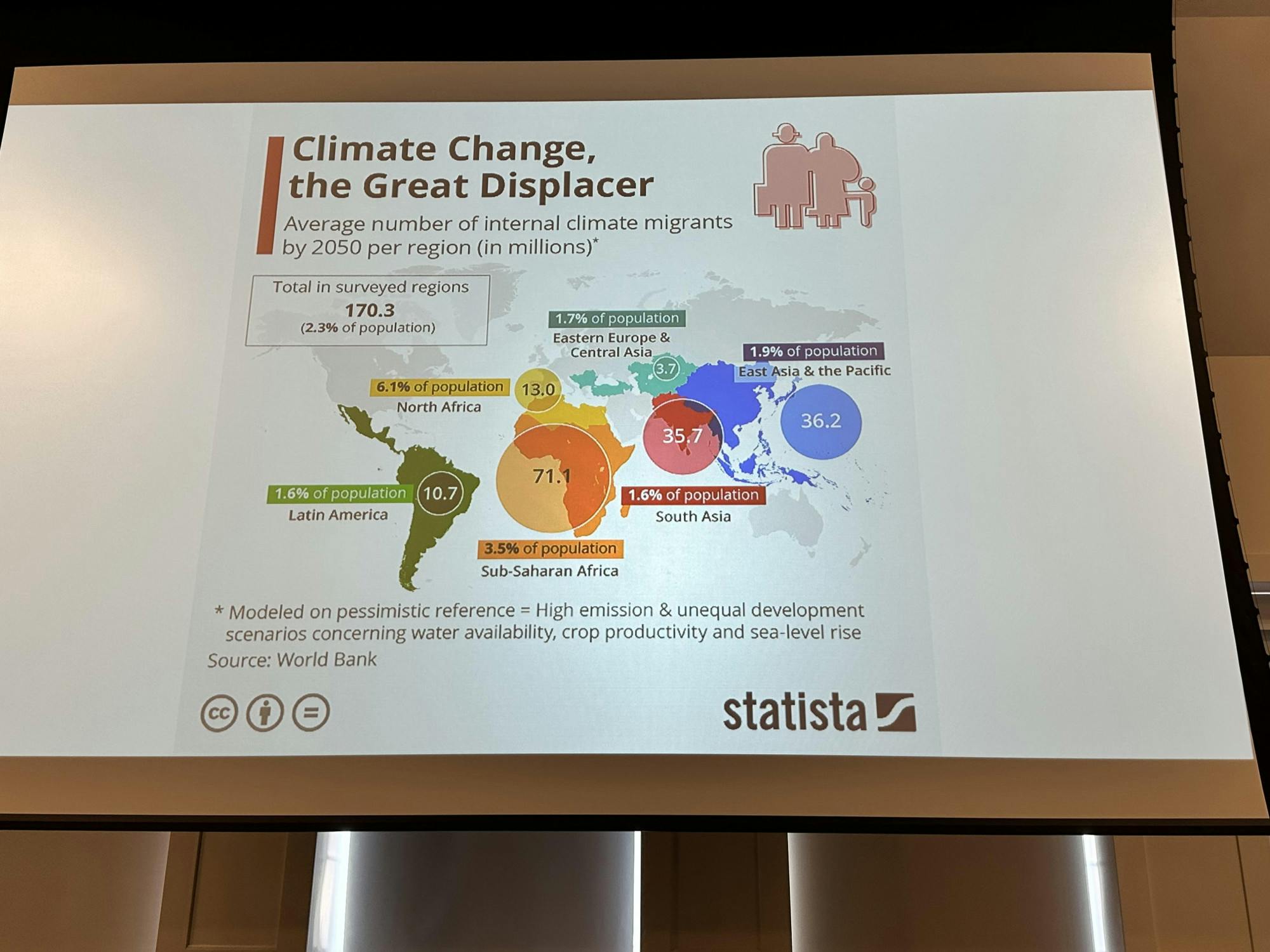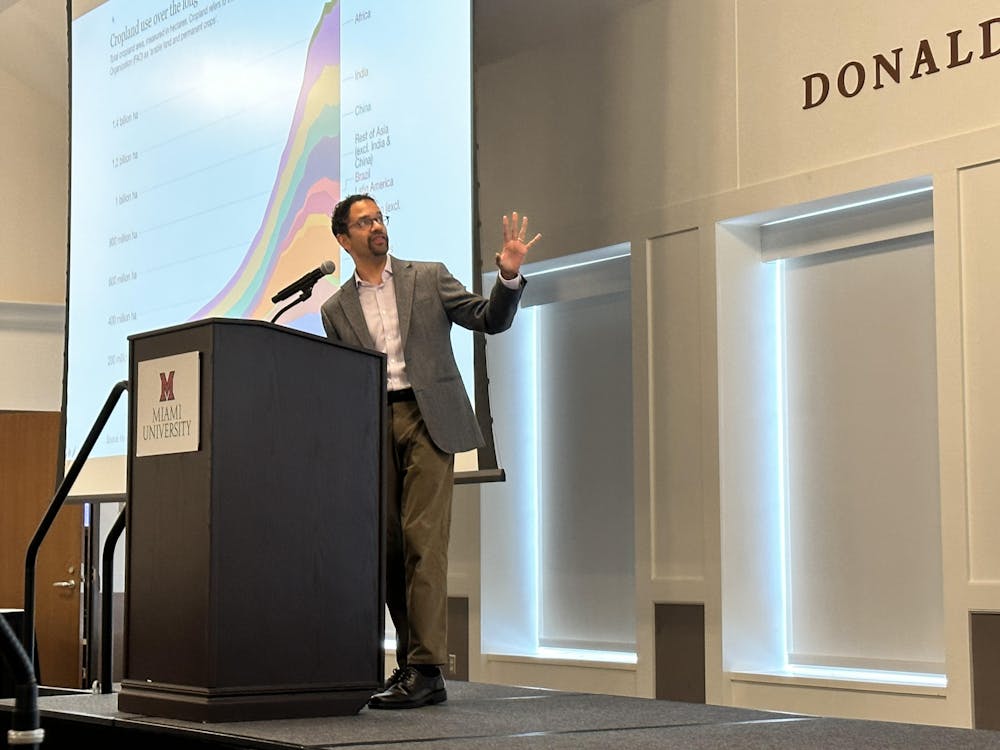Miami University students and faculty listened closely as environmental and migration history expert Sunil Amrith delivered a lecture about reframing the conversation around climate migration and how the history of migration gives us a greater understanding of climate change.
According to the Institute for Economics and Peace, “If natural disasters occur at the same rate seen in the last few decades, 1.2 billion people could be displaced globally by 2050.”
In his lecture on Tuesday, Sept. 12, Amrith sought to address this problem and offer a different perspective than the alarmist narrative from some media organizations when referring to climate migrants or refugees.
“We hear of floods or waves of climate migrants with the spoken or unspoken assumption that most of them will be at the gates of the wealthiest countries in the world, demanding to be let in,” Amrith said. “That simply isn’t true.”
Amrith is the Renu and Anand Dhawan Professor of History at Yale University and is the current chair of the South Asian Studies Council. He received the 2016 Infosys Prize in Humanities, is a 2017 MacArthur Fellow and is the author of four books.
Throughout the lecture, Amrith explained how history impacts migration and how language influences movement — such as assisted migration being a euphemism for indentured labor in the British Empire.
“We can’t think about migration without thinking about history,” Amrith said. “For most of the global south, that means thinking about the history of the empire and its legacies.”

hh
Later in the lecture, Amrith described how environmental justice is only achievable with the freedom to create a livable home, whether people seek it within or beyond their borders. However, due to economic inequality, migrants cannot always seek a new home, and others may not want to migrate in the first place.
“Environmental justice is and must be about restitution and reparations,” said Amrith. “Without them, we cannot talk about justice at all.”
Luis Pradanos, the chair of the Spanish and Portuguese department, resonated with Amrith’s message on environmental justice because of his experience and research in the field.
Enjoy what you're reading?
Signup for our newsletter
“The people most responsible for the [climate] crisis are the ones that suffer the least, while the ones who are the least responsible are the ones on the front lines of the suffering,” Pradanos said. “I don’t think we can solve the ecological crisis without simultaneously solving the inequality crisis.”
First-year undecided major Courtney Van Winkle said she enjoyed Amrith’s fresh perspective on the issue of climate migration.
“I found value in it,” Van Winkle said. “The thing is with education, I come out a different person each time with a new perspective … I just start thinking about the world differently.”




